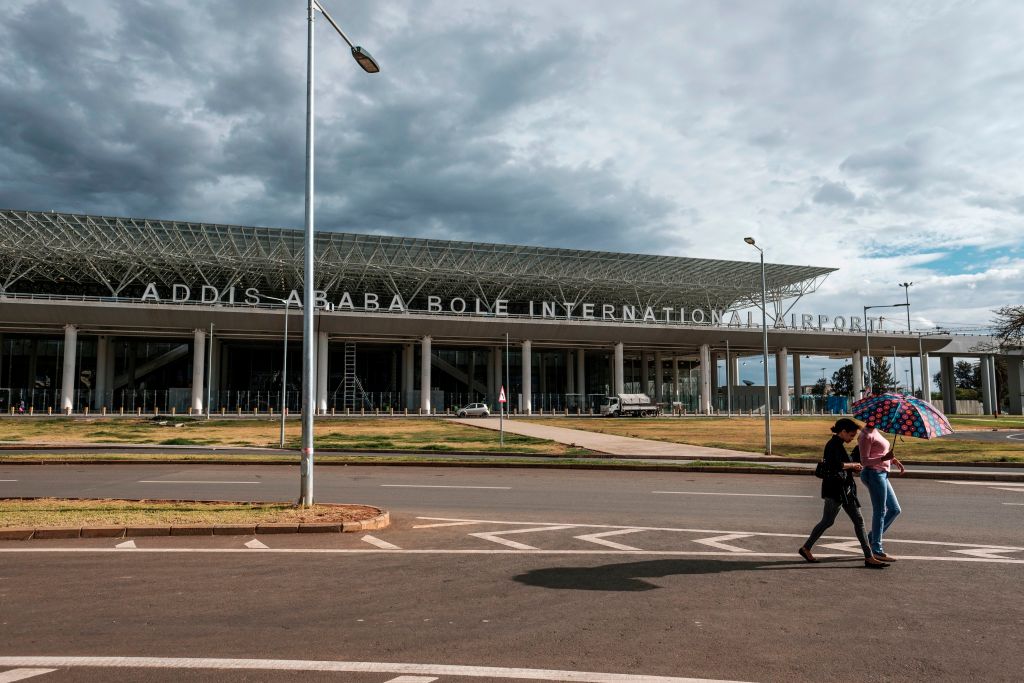ADF STAFF
Drug confiscations at Ethiopia’s Addis Ababa Bole International Airport have more than doubled over the past year, an indication of Ethiopia’s growing role as a hub of drugs moving from South America to Europe and southern Asia.
The Ethiopia Customs Commission says that drug trafficking into Ethiopia grew by 254% while trafficking out of Ethiopia grew by 163% over the past 11 months. The value of the trafficked materials, which included cocaine, heroin and other drugs, more than doubled from about $80 million to nearly $190 million between July 2022 and July 2023.
“Smugglers are working hard to use Addis Ababa as their destination and transit point,” Customs Commissioner Debele Kabeta told national legislators recently. “These practices at the airport were never a trend in Ethiopia previously.”
Although Ethiopia has recorded a variety of drug trafficking busts in recent years, observers say the recent boom in drug trafficking through Addis Ababa has coincided with tighter customs controls at airports in Kenya and Tanzania, along with arrests of major drug traffickers in Tanzania.
“For a long time, the security at JNIA [Julius Nyerere International Airport] was poor, and traffickers exploited this,” Cassian Nyandindi, deputy commissioner general of Tanzania’s Drug Control and Enforcement Authority, told the Global Initiative Against Transnational Organized Crime.
The growth in drug trafficking also has coincided with an expansion of Ethiopia’s international airport, an expansion that has outpaced airport security, according to Global Initiative analysts.
The United Nations’ 2023 World Narcotics Trafficking Report found that 64 of the 165 cocaine traffickers arrested in Brazil were bound for Addis Ababa.
John Wotherspoon, head of Voice for Prisoners in Hong Kong, told Ethiopian news website Borkena.com that many of those arrested on drug trafficking charges are women.
West African syndicates, long experienced in smuggling cannabis and heroin, are actively networking in Latin America and have played a key role in the rise of cocaine trafficking and abuse in Eastern Africa, according to the United Nations Office on Drugs and Crime. Many of the traffickers are Nigerian men who force the women to act as drug mules, according to Wotherspoon.
In September 2019, a female traveler from São Paulo, Brazil, was stopped at Bole International while carrying 8 kilograms of cocaine. The year before, another woman was forced to swallow pellets containing 644 grams of cocaine to transport from Addis Ababa to Hong Kong, according to Wotherspoon.
According to news accounts, 14 Angolan citizens — seven men and seven women — were arrested on cocaine trafficking charges in Ethiopia while traveling from Brazil. In November 2023, six Nigerian men were arrested in Brazil when airport security revealed that each had swallowed 150 cocaine-filled capsules ahead of their flight to Ethiopia.
In early January 2024, a Namibian woman was arrested at Bole International while carrying cocaine.
Wotherspoon’s group has called for Ethiopian authorities to boost security at Bole International Airport to restrict drug trafficking there.
“We are appealing, not accusing the government, to urgently enhance security,” Wotherspoon said.

